
子曰:当仁不让
Gorbachev's Dilemma No. 5: The Dnepr Gang
[The account cannot be counted on the Dnieper gang]
Alcoholism, sexting and political jokes were an important part of the daily spiritual life of the Soviets.
Lei Guanghan, who lived in exile in the Soviet Union and settled in Central Asia in 1970, was shocked when he first entered the Soviet Union at the phenomenon of telling political jokes.
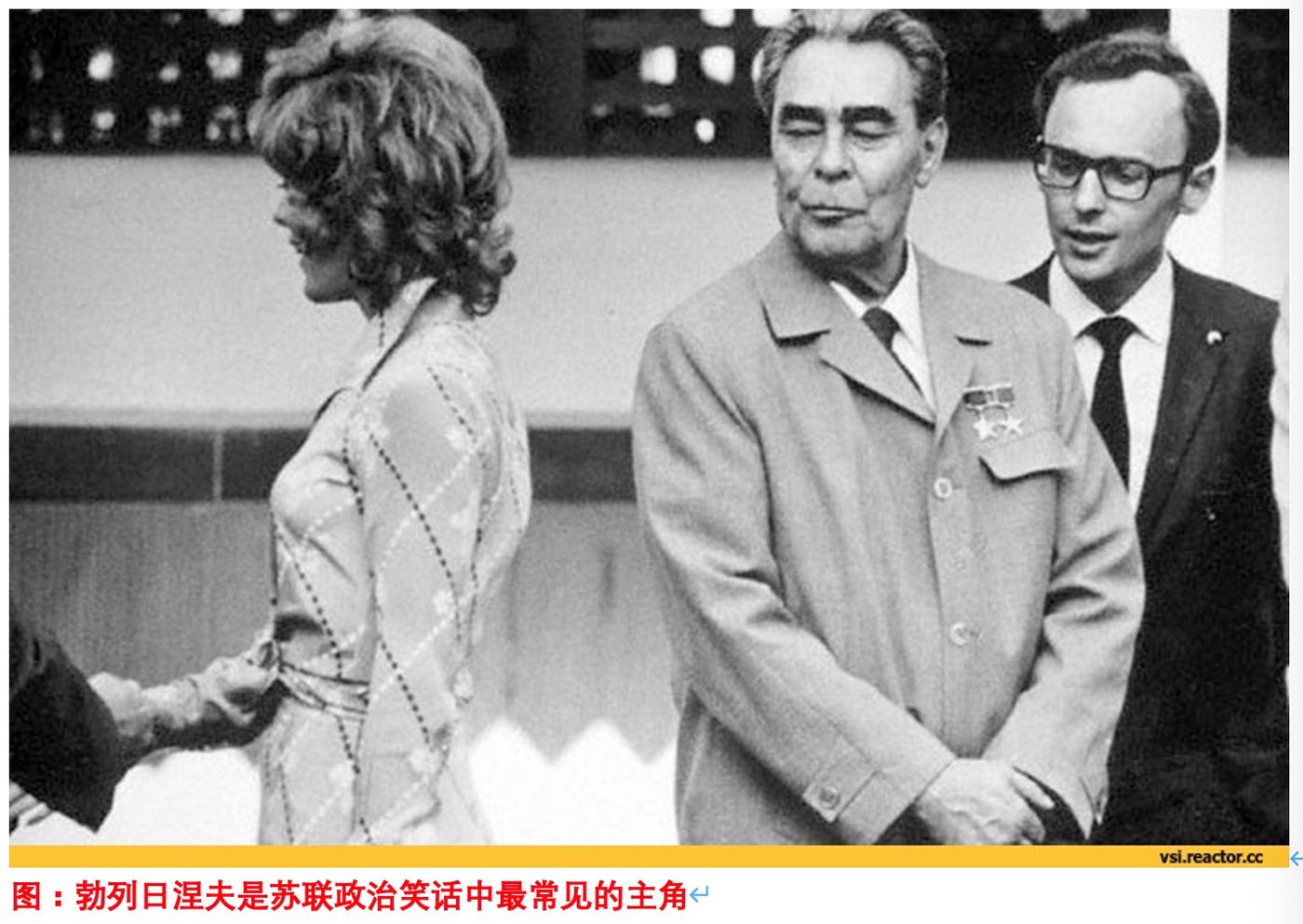
Compared with the Soviet people of Stalin's time, the Soviet people of this session have no political consciousness.
In the Stalin era, forced labor and voluntary labor were common, and people did not dare to complain. In the Brezhnev era with high welfare, not only did they tell political jokes, but the theft, foreign workers, alcoholism, absenteeism, and destruction of tools and equipment became more and more serious . In 1979, there were more than 300 mass incidents in which workers refused to go to work due to treatment problems.
Worse than the Soviet people were the Soviet officials. The proliferation of political jokes is itself a reflection of their image in the eyes of the Soviets.
The worst performer was Brezhnev himself.
Brezhnev was Khrushchev's subordinate during his work in Ukraine. Under Khrushchev's promotion and recommendation, he entered the central government in 1952. After Khrushchev became the leading core, Brezhnev became Khrushchev. husband's right arm.
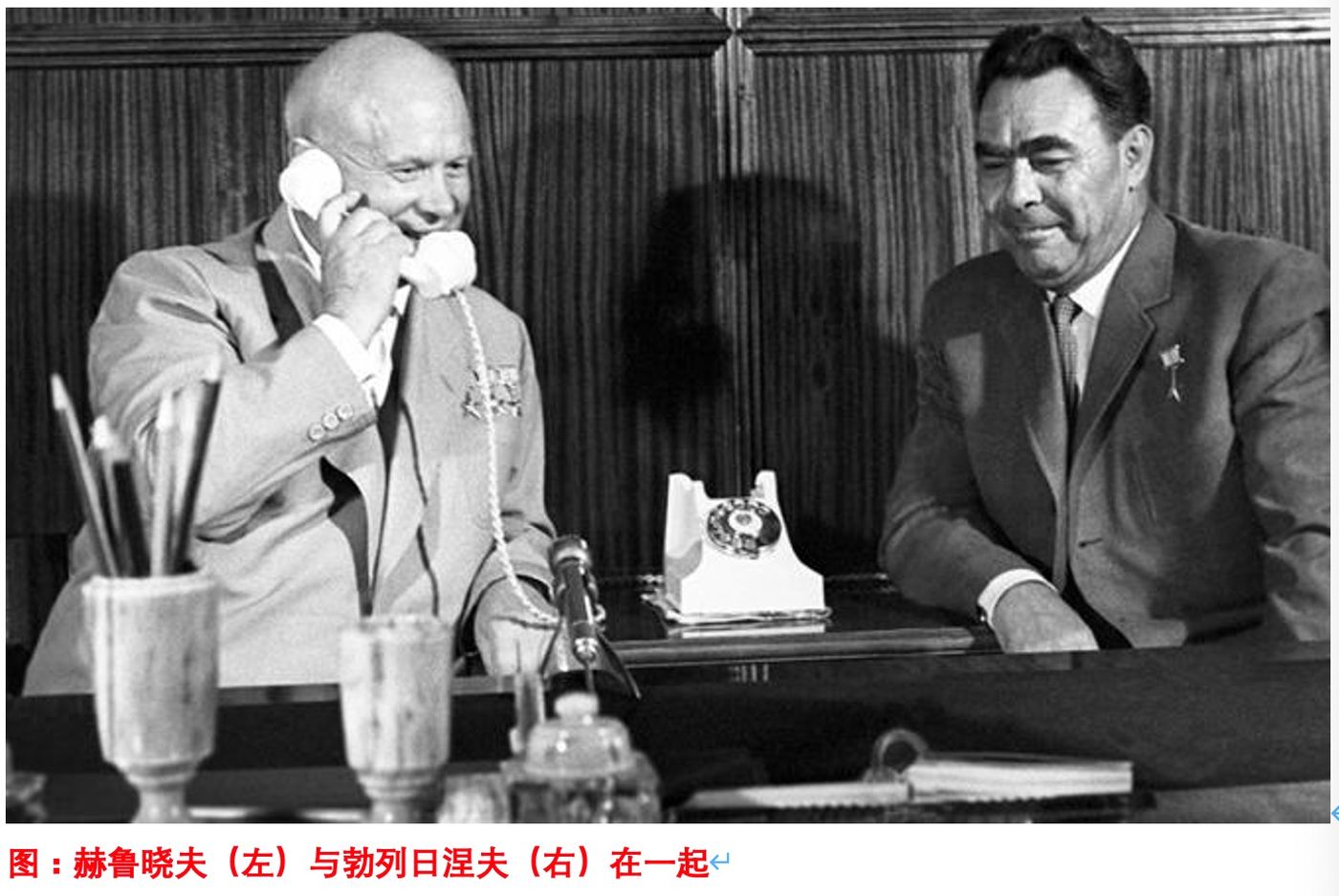
In October 1964, Brezhnev joined forces with Kosygin, Suslov, and Shelepin to oust Khrushchev from power and became general secretary.
Brezhnev was elected as general secretary, which is the valuable opinion that the comrades of the Politburo summed up experience and lessons from history and unanimously obtained.
Stalin was a leader who liked to weed out old comrades, who were called to meetings and sometimes worried about being able to return home safely. After Khrushchev came to power, everyone's life was guaranteed, but Khrushchev's reforms were frequently changed, and the flop rate of the leadership seat was even much higher than that of Stalin .
Brezhnev's advantage is not tossing, good at uniting the leadership. The tenure system for cadres formulated by Khrushchev, the Central Committee renews 1/4 of each time, and the reduction of cadre treatment, etc., were abolished by Brezhnev one by one, guaranteeing the status of comrades.
Even if they disagree with Brezhnev, they will not be arrested or even killed. At most, they will retire or leave the center. The people are dissatisfied, and they will only go to the madhouse without fear of being executed. Political life in the Soviet Union is finally no longer harsh.
The side effect of this is that the entire state apparatus is slowly getting old along with the comrades in the Politburo, and the careers of young cadres have become very introverted.
What's more interesting is that Brezhnev did not shy away from relatives when he was a virtuous person. His son and son-in-law were both deputy ministers, one was the Ministry of Foreign Trade and the other was the Ministry of Internal Affairs. Power groups or political gangs large and small.
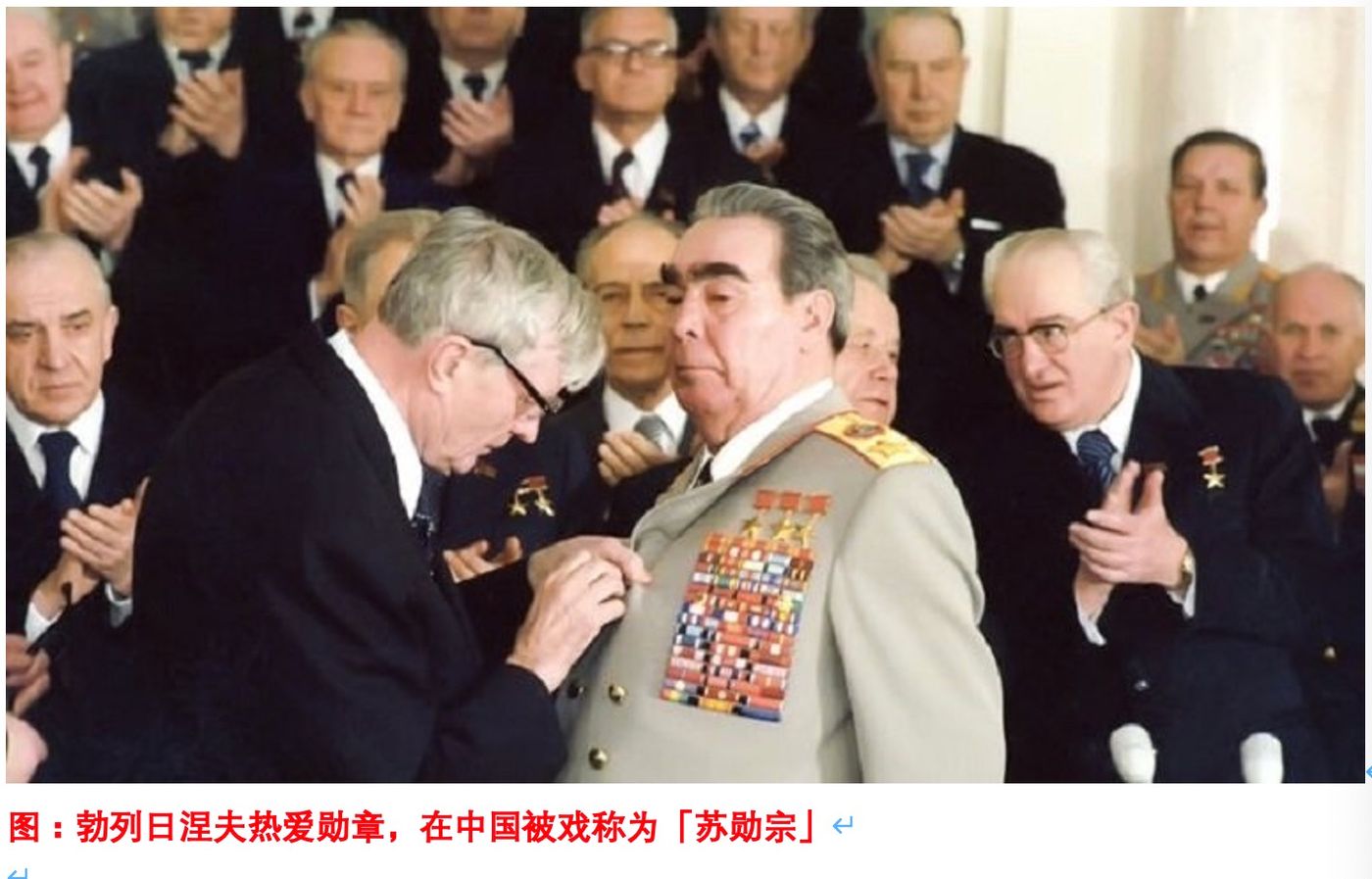
The biggest, of course, is the "Dnepropetrovsk Gang" (referred to as the Dnepr Gang ) with Brezhnev himself at the core.
The name comes from Brezhnev was born in Dnipropetrovsk, Ukraine , graduated from the Dnipropetrovsk Metallurgical Institute and served as the first secretary of the Dnipropetrovsk Oblast.
After Brezhnev became the core of the new generation of leadership, he vigorously promoted friends, classmates, colleagues or subordinates he met in his early revolutionary career, most of whom came from Dnipropetrovsk.
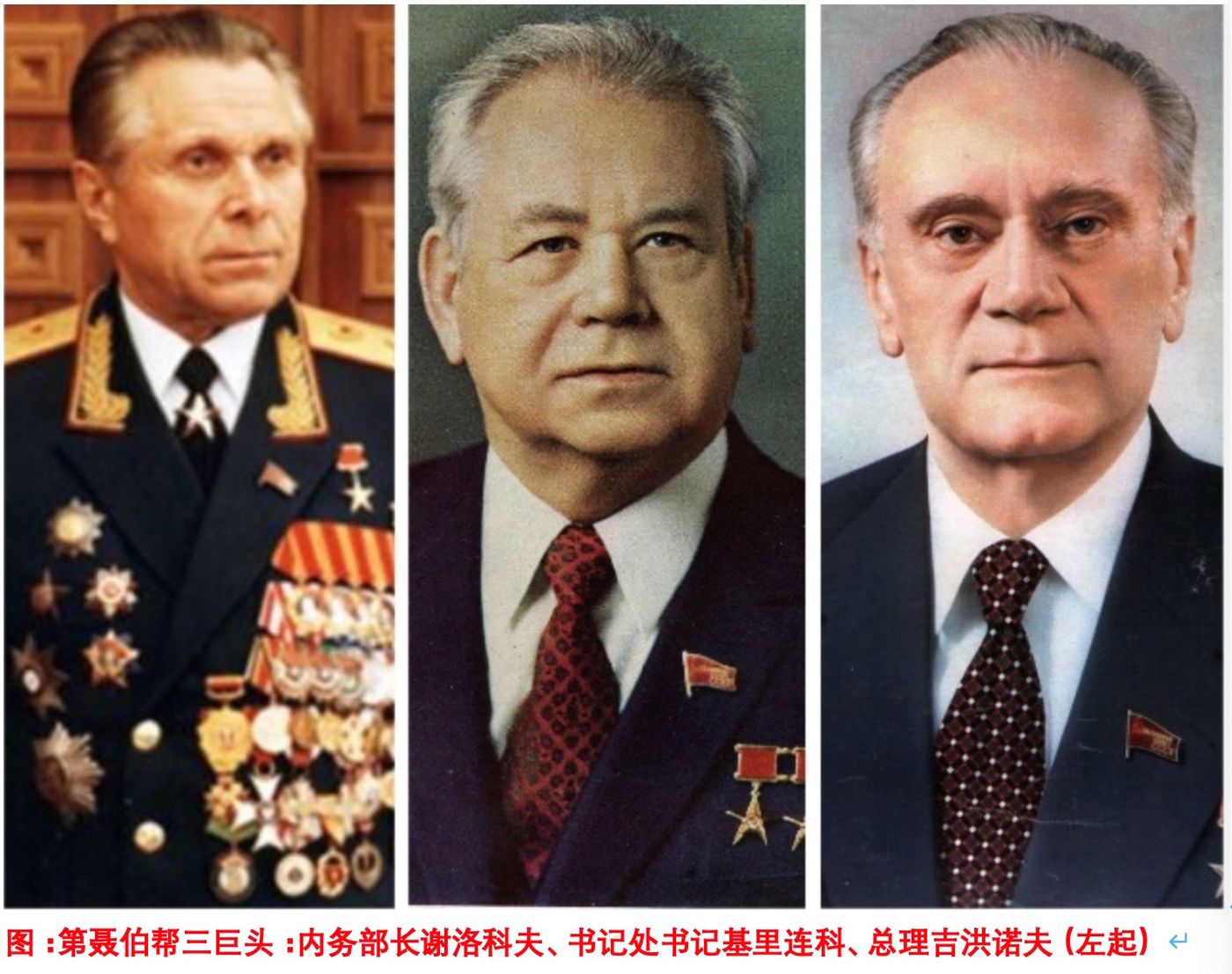
Before Brezhnev's death, the more prominent "Dnepr gang" were:
Later General Secretary Chernenko , Prime Minister Tikhonov , Secretary of the Secretariat Kirilenko , Secretary of Ukraine Shcherbitsky , Secretary of Kazakhstan Kunayev , Minister of Internal Affairs Shelokov , Minister of Defense Grezik , KGB First Vice-Chairman Zweigon , KGB Vice-Chairman Zinev , Director of the Central Office Pavlov ...
The second-in-command of the KGB, Zweigon, has a very high reputation in the Soviet Union. He is a famous spy war writer who has indirectly influenced Putin's life trajectory - Putin decided to join the KGB after watching the TV series "17 Moments of Spring", while Zweigon is the general counsel of the show. Zweigon turned from a writer into the second-in-command of the KGB. First, he created a large number of spy works, and second, he and Brezhnev were brother-in-law .
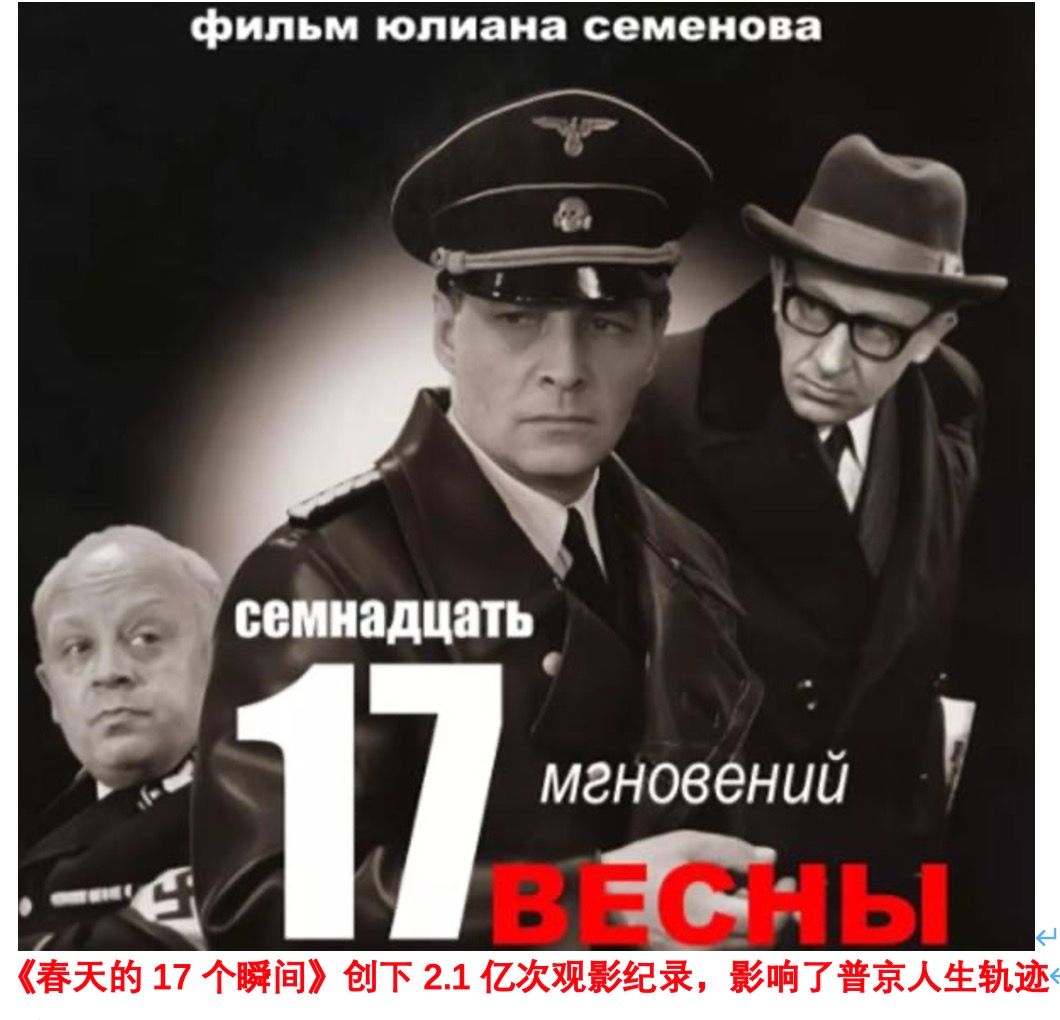
In addition, Air Force Marshal and Minister of Civil Aviation Bugayev, who used to be the pilot of Brezhnev's special plane.
The "Dnepr gang" has almost monopolized the power of the high-level. Getting to know or catching up with this line is the best political way to climb up. Therefore, the "Dnepr gang" has become the corrupt engine of the times.
At that time, the representative corruption cases in the Soviet Union were: the cotton case of Uzbekistan, the export of herring roe, the case of selling officials in Azerbaijan, the Medunov case, the Shelokov case, and the jewelry and diamond smuggling case. Most of them involved the top level of the "Dnieper Gang".
They fully demonstrate the diversity of corruption: some sell them for officials and party members at a clear price, some cooperate with overseas businessmen to sell export materials at a low price, some have monopoly sales licenses, and some embezzle public funds.
The major case among the major cases is undoubtedly the cotton embezzlement case headed by Uzbekistan's top leader and Brezhnev's cronie Rashidov. Gorbachev came to power to investigate again, and until the disintegration of the Soviet Union, the case was not really thoroughly investigated.
Almost all middle and high-level officials in Uzbekistan were involved. 56,000 people were arrested and interrogated in this case, and 27,000 officials were sentenced, including 3 at the deputy state level and more than 100 at the ministerial level.
Many people were dragged into the water for participating in the investigation of the case, such as Brezhnev's son-in-law and Deputy Minister of Internal Affairs Churbanov, whose crimes were exposed as early as 1983, but in 1986 Gorbachev second. A round of anti-corruption was put on trial.
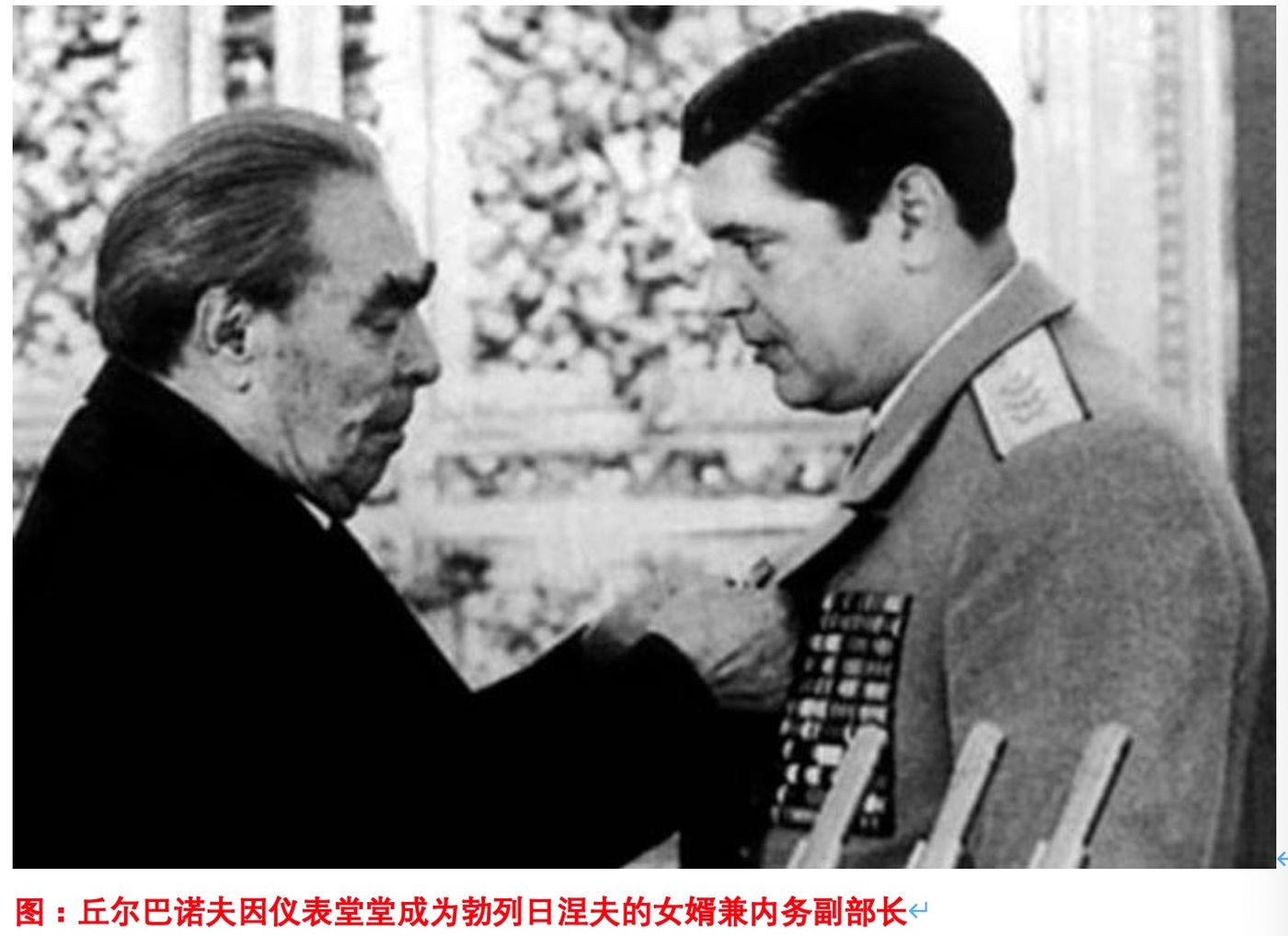
During the anti-corruption and production discipline campaign launched by Andropov, the CPSU fired 420,000 party members, and after Gorbachev came to power, nearly 500,000 party members were fired in four years.
In Andropov's first year in office, more than 70 ministers and state party secretaries were dismissed and investigated for alleged corruption. Due to the serious corruption of the party and government system, Andropov only trusted KGB officials, and even set up a petition department in the KGB. The unique role of the KGB in Andropov's anti-corruption campaign profoundly influenced Putin later .
During Andropov's anti-corruption campaign, two senior members of the "Dnepr Gang" committed suicide.
One is the Minister of Internal Affairs Shelokov. He committed suicide because of corruption and suspected political murder. Before his death, he left a note to Chernenko: "Please don't let the villains slander me wantonly. This will damage the prestige of leaders at all levels. Everyone experienced it before Lezhnev took office."
Another suicide is the second-in-command of the KGB and former spy writer Zweigong. The cause of the suicide is not officially determined.
Three years after Gorbachev came to power, all members of the Politburo and the "Dnepr gang" among the alternate members of the Politburo completed their retirement. At the plenary session of the CPSU Central Committee in the fourth year, more than 100 members of the Central Committee were dismissed at one time on the grounds of youth.
So far, the "Dnepr Gang" in the central leadership sequence has basically been cleaned up, but there is one legacy of the "Dnepr Gang" that the Gorbachevs could not remove at all:
During the Brezhnev era, the power of appointing local officials was delegated to the states and localities . gang”, and combined with nationalism to form a special alliance of interests .
Gorbachev just drove the leader away, but the intertwined organizational achievements could not be destroyed. Except for the truly democratized three Baltic countries, the "Dnepr Gang" had a profound impact on the political ecology of most newly independent countries in the post-Soviet era. .
In the more than 20 years since Ukraine's independence, politicians are often corrupted. The most notorious ones are President-elect Kuchma in 1994, Prime Minister-elect Lazarenko in 1996, and Prime Minister-elect Timoshen in 2005. division. All three are from Dnipropetrovsk.
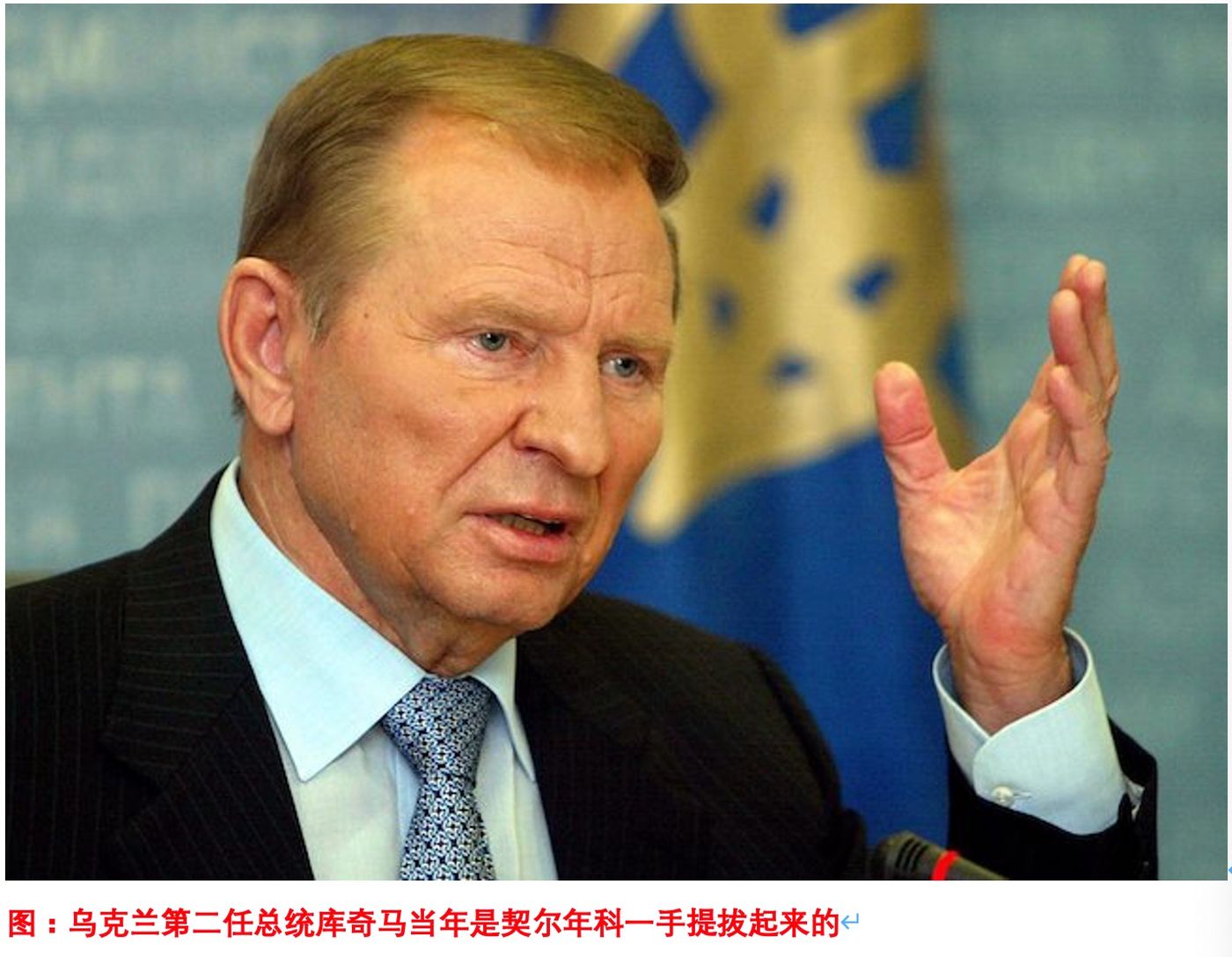
And Victor Pinchuk and Igor Kolomoysky of the three major Ukrainian oligarchs are also from Dnipropetrovsk. They are called the contemporary "Dnepr gang" .
The highest achiever of the "Dnepr gang" is Nazarbayev of Kazakhstan. Nazarbayev studied at the technical school of the Dnipro Metallurgical Plant in Dnipro Dzerzhinsky City from 1958 to 1960, and was regarded as the younger brother of Brezhnev.
With the relationship between the leader and the younger brother, Nazarbayev became the second person in Kazakhstan after Kunayev at the age of 44. In 1989, he became the leader of Kazakhstan, and he has been working until 2021 to Tokayev. Handed over power and reigned for 32 years .
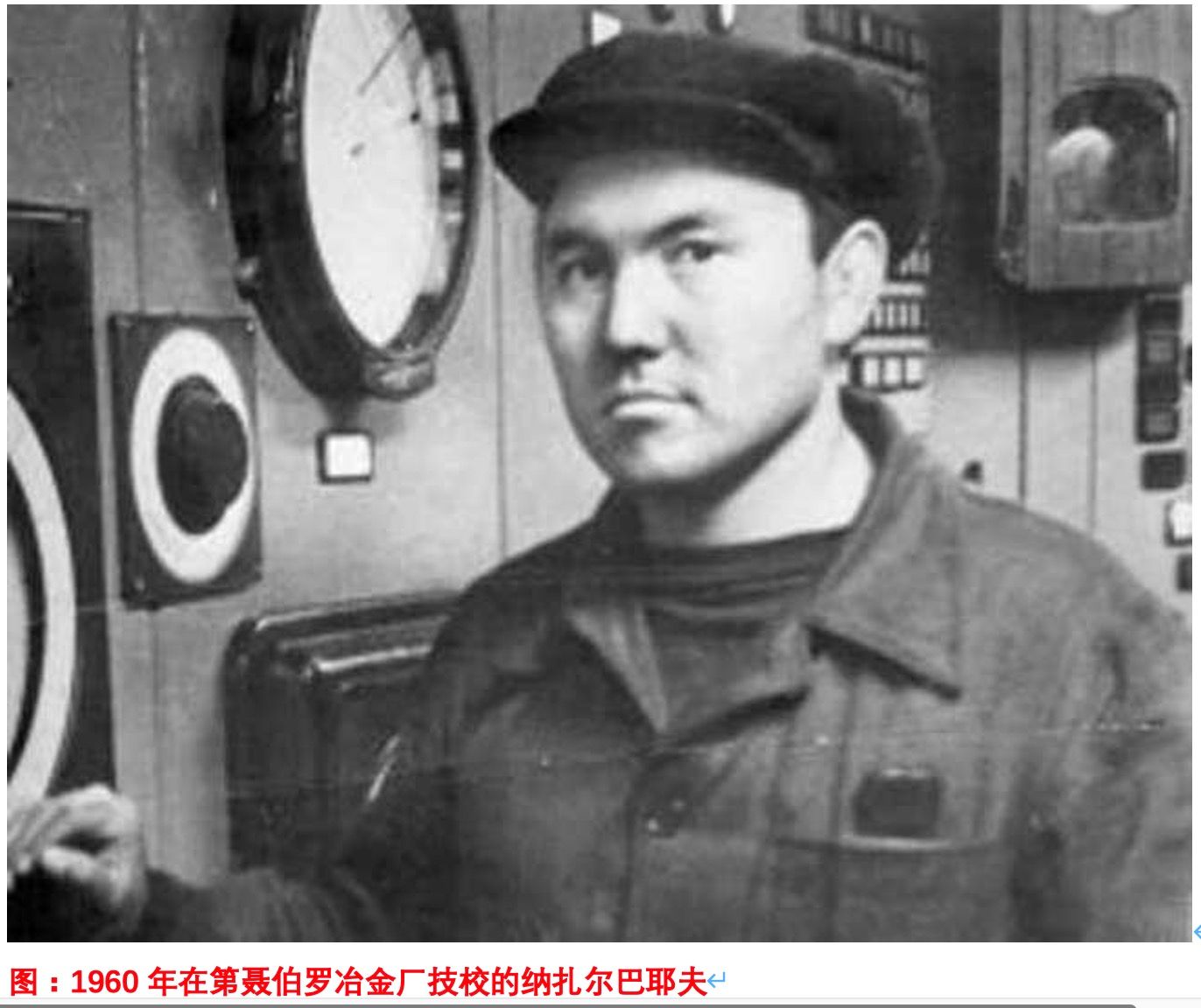
It's unfair to blame Brezhnev.
The problem of privileges in the late Soviet Union was so serious that when Gorbachev launched an anti-privilege movement, the common people did not believe that they would turn against themselves, so they spontaneously organized to collect evidence of official privileges. As the policy loosened, their anger quickly turned from officials to the system .
The privilege system was founded by Stalin, and the systematization and standardization of special commodities, special medical care, special housing, special education, etc., were all formed here. It is a reward mechanism for the loyalty of subordinates to superiors , just like workers who produce more parts in a factory Should get a TV just as logically.
The privileges of the Brezhnev era were nothing more than a rise in standards and universality as productivity increased.
In terms of cadre selection, the superior appointment system replaced the early democratic elections, which began with Lenin; however, Lenin and Stalin's cadre policies were never universal, let alone a tenure system. collective opposition.
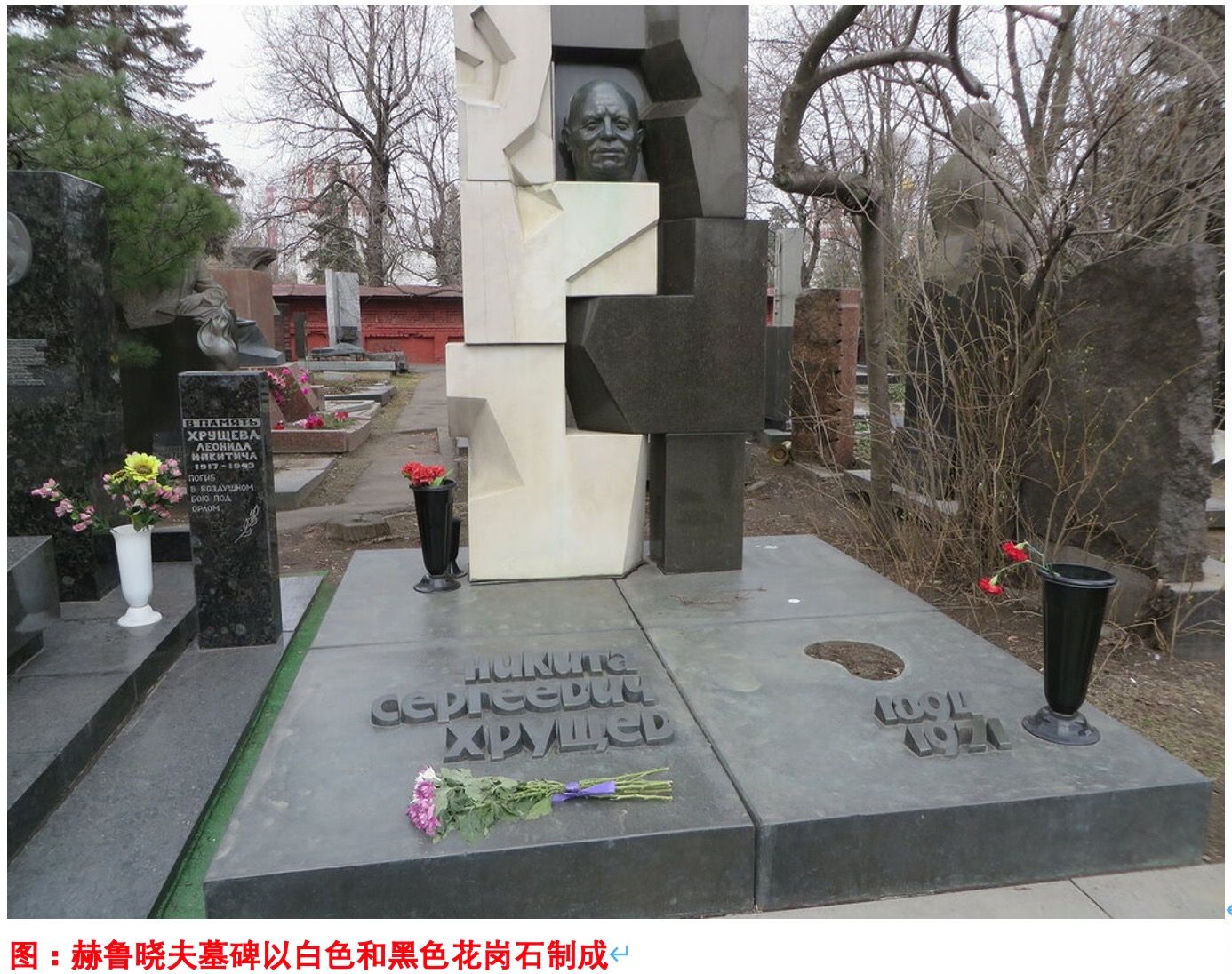
The composition of the "Dnepr Gang" shows that Brezhnev is at least not bad. He is not cruel and cruel, so he will not gather a group of cruel officials around him. He was afraid of being sacked by his comrades like Khrushchev, so the Politburo was a trusted acquaintance .
He is a person who loves life. He is not as keen on the discipline of production as his predecessors did, which made workers and peasants jump around, giving workers and peasants, like cadres, the opportunity to dig socialist corners to improve their lives.
He is a sympathetic person. In 1969, members of the collective farms were able to move around freely with the domestic passports issued by the Ministry of Internal Affairs, just like urban residents. They did not have to leave the village with the consent of the village committee and live in non-residential areas as before. shall not exceed 30 days.
Among Brezhnev's negative legacy, perhaps comparable to corruption, is the size of party and government officials.
During Brezhnev's 18 years in power, the establishment of the party and government agencies has expanded fivefold. There are 18.6 million people in the Soviet Union who eat in party and government agencies, accounting for 15% of the total employed population, and the annual headcount cost is 40 billion rubles. There are more than 800 ministers and deputy ministers of various ministries and commissions.
In order to match the extraordinary achievements of a powerful and powerful country, in the 1970s, the Soviet Union opened hundreds of new newspapers and magazines, and established a large number of social science and cultural institutions to study and summarize why the Soviet Union was so powerful.
The institutional expansion in the Brezhnev era was actually just an organizational inertia.
What Lenin created was a system for the party to manage all social affairs, and it naturally needed more cadres . The Soviet government of 1921 had a tenfold increase in the number of state institutions and a fourfold increase in the number of people compared to the Russian regime before the revolution of 1917.
Government organizations have a natural tendency to expand. Under a democratic system, the constraining power comes from the parliament at the same level, relying on the soft constraints of the budget. Under the Soviet system, the binding force came from the superiors, relying on rigid executive orders.
Under the Soviet system, plans are laws and orders are laws. Party and government organs can empower themselves at any time. Even Khrushchev, who loves to streamline institutions, has difficulty controlling institutional expansion.
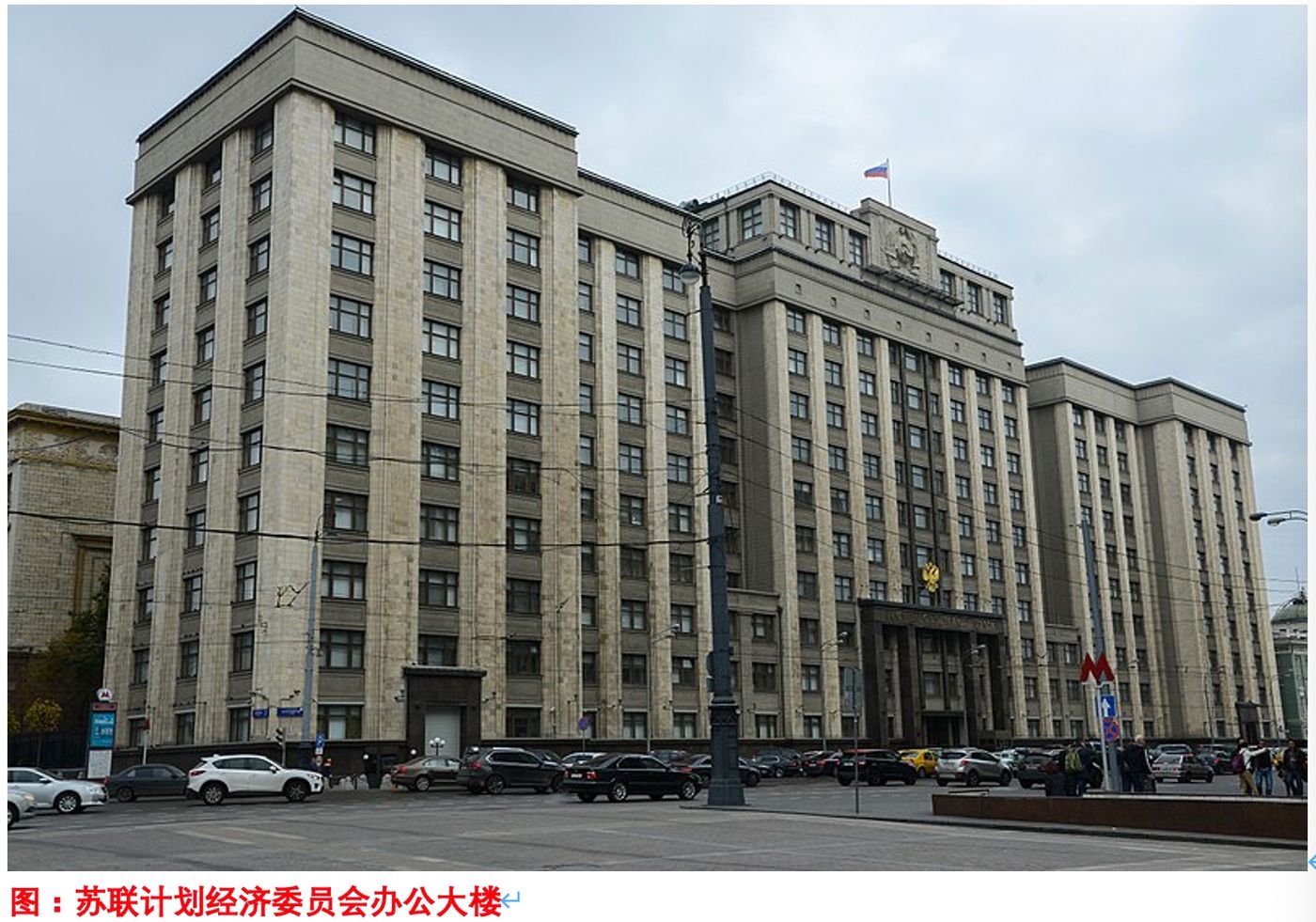
From 1954 to 1956, Khrushchev drastically reduced nearly one million full-time management positions. In 1957, he changed the vertical management of the central ministries and commissions of industry and construction to local management, and abolished 144 ministries under the central and republic. , handed over to local 104 committees.
However, after the company was transferred to local management, the local staff went through the design of the stacked bed and frame house, but it swelled dramatically. In the end, the total staff structure tripled. The reduction of planned interventions also failed, with vertical interventions being replaced by horizontal commanding, with the surprise of increasing local barriers and disrupting supply cooperation.
Generally speaking, the situation is severe, and we must streamline institutions, reduce intervention, and promote social and productive development. No one will oppose reform, as long as the reform does not change on our own .
But if the organization is so large that it begins to reform and streamline when social resources are exhausted, it will sooner or later turn the entire bureaucratic apparatus into an ally against reform.
Like my work?
Don't forget to support or like, so I know you are with me..
Comment…